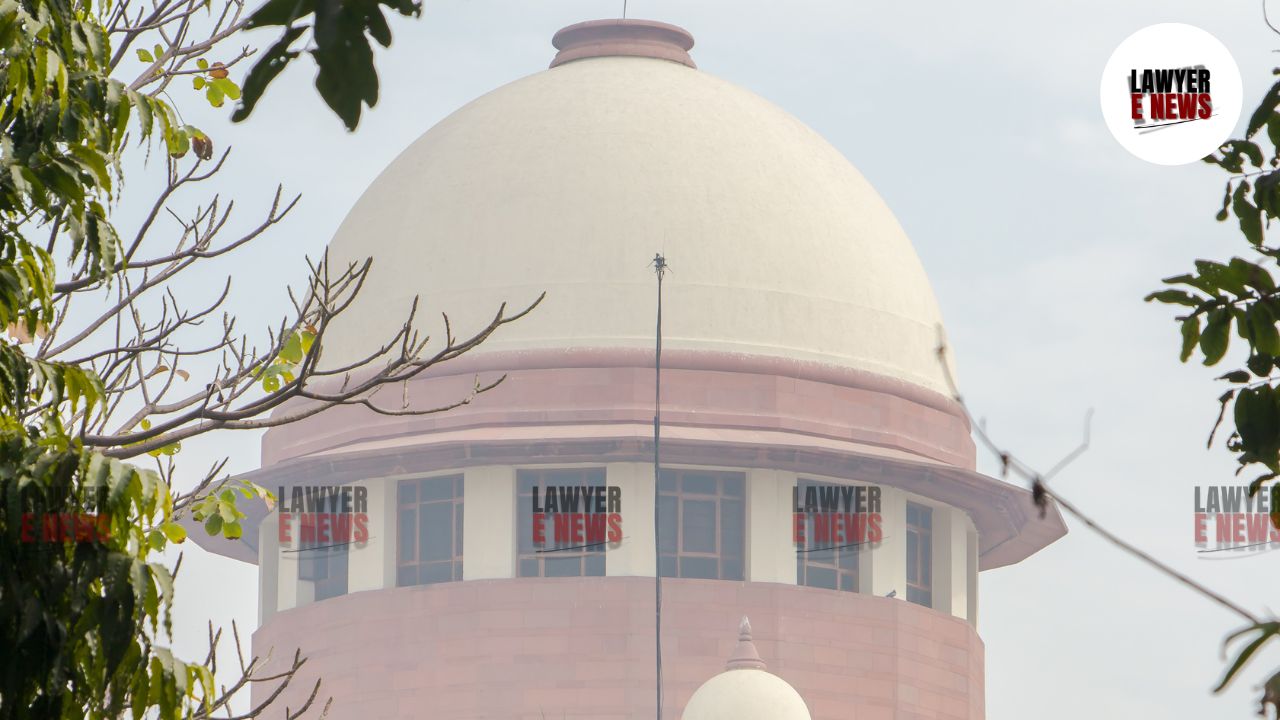-
by Admin
15 February 2026 2:36 AM



Supreme Court has dismissed an appeal challenging the imposition of a ten-times penalty on deficit stamp duty for an unregistered agreement of sale. The judgment, delivered by a bench comprising Justices Hrishikesh Roy and S.V.N. Bhatti, underscores the mandatory nature of penalty provisions under the Karnataka Stamp Act, emphasizing that courts have no discretion to impose a lesser penalty when an insufficiently stamped document is presented in evidence.
The appellant, N.M. Theerthegowda, filed a suit (O.S. No. 610 of 2015) seeking specific performance of an agreement for sale dated November 4, 1996, and the cancellation of a subsequent sale deed executed on August 13, 2003. The agreement was written on stamp paper worth ₹200, significantly less than the required ad valorem stamp duty under the Karnataka Stamp Act. The trial court imposed a ten-times penalty on the deficit stamp duty, totaling ₹15,81,800. The appellant challenged this order, arguing that only the deficit stamp duty should be collected at the judgment stage, and the penalty was excessive and illegal.
The Supreme Court reaffirmed that under Section 34 of the Karnataka Stamp Act, courts are obligated to impose a penalty of ten times the deficit stamp duty when an insufficiently stamped document is presented. The Court noted that the appellant, having voluntarily sought the court’s decision on stamp duty at the interlocutory stage, could not later request the deferment of the penalty payment until the decree stage. The bench stated, “The appellant, having invited the court to decide under Section 34(1) of the Act, cannot now express willingness to exercise the option under Section 37(2) of the Act.”
The Court extensively discussed the relevant sections of the Karnataka Stamp Act. It highlighted that Section 34 bars the admission of an inadequately stamped document in evidence unless the deficit stamp duty and the prescribed penalty are paid. Furthermore, the Court clarified that while Section 39 allows for a penalty of up to ten times the deficit stamp duty, this is the maximum limit, applicable in extreme cases. However, once the penalty is imposed under Section 34, there is no discretion to impose a lesser penalty, reaffirming the non-discretionary nature of this statutory provision.
Justice Bhatti remarked, “The case of the appellant is covered by Section 34 of the Act, and rightly, ten-times penalty is imposed. The appellant, having invited the court [to decide], cannot now express the willingness to exercise the option under Section 37(2) of the Act.”
The Supreme Court’s judgment reaffirms the strict enforcement of the Karnataka Stamp Act’s provisions regarding the payment of stamp duty and penalties. By dismissing the appeal, the Court has sent a clear message that parties must comply with statutory requirements at the earliest stages of litigation, particularly in matters involving insufficiently stamped documents. This ruling is expected to have significant implications for future cases involving the admission of such documents in civil proceedings.
Date of Decision: September 2, 2024
N.M. Theerthegowda v. Y.M. Ashok Kumar & Ors.
